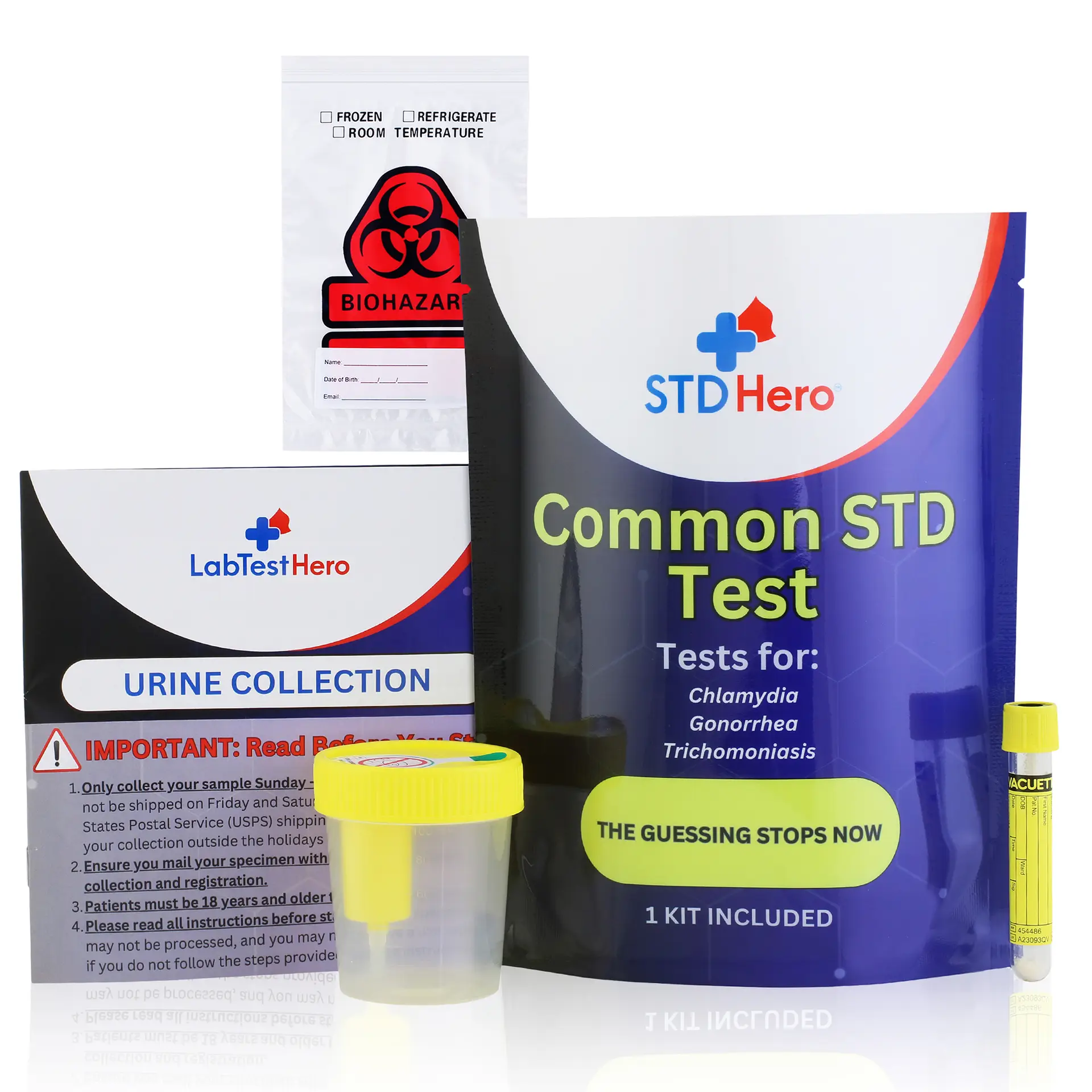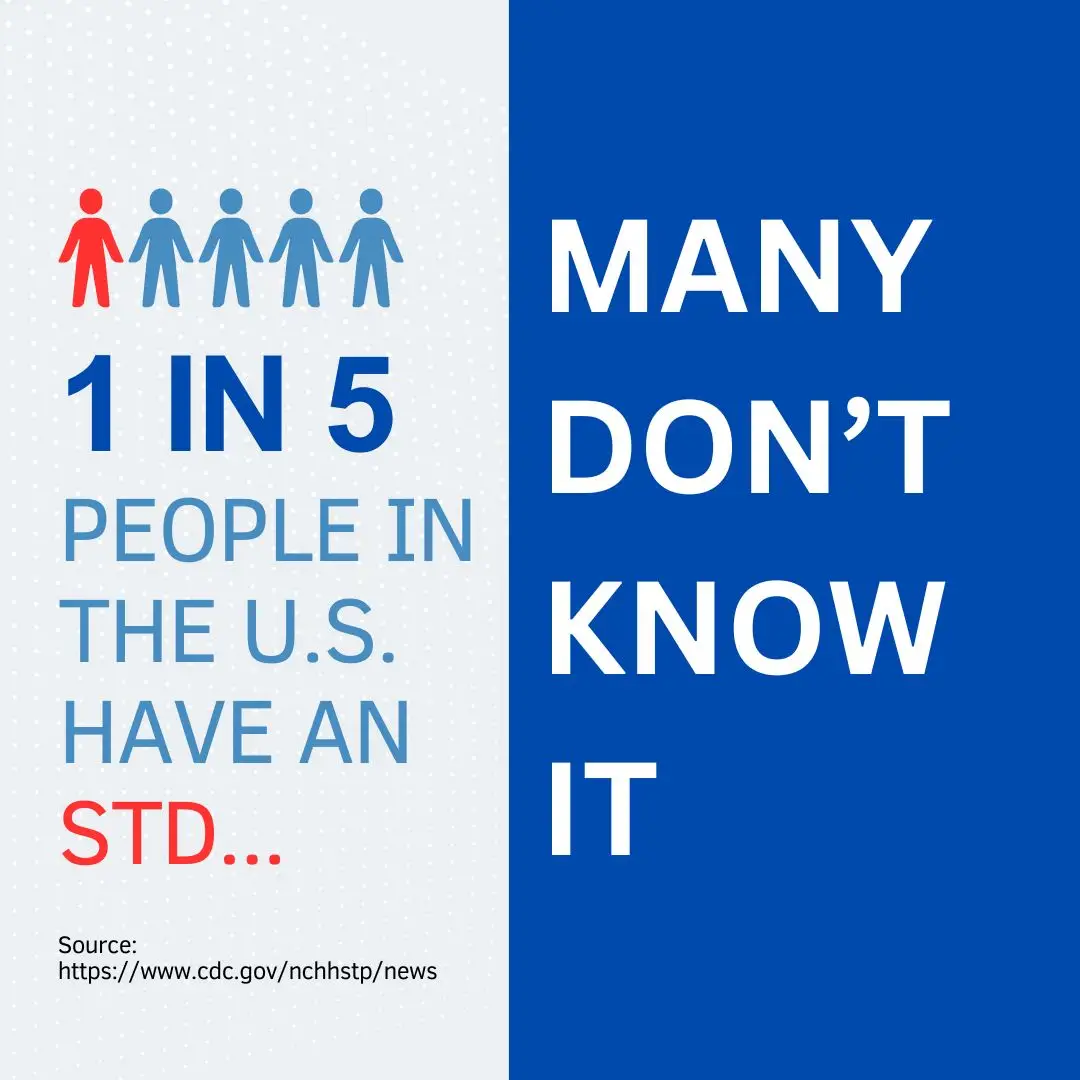Description
Our Common STD testing panel includes Chlamydia, Gonorrhea, and Trichomoniasis. These sexually transmitted infections are common and easily spread through unprotected sexual contact. Early detection and treatment of these infections is essential for maintaining sexual health and preventing further spread.
Our testing panel uses a simple urine sample, making the process easy and convenient. You will receive your results within two days through a secure and confidential patient portal. Our laboratory is CLIA-certified, guaranteeing the highest level of accuracy and precision in all tests. Our team of expert scientists and healthcare professionals is dedicated to providing you with the most reliable and high-quality testing services available.
If you have been sexually active and are concerned about your sexual health, our Common STD testing panel is a great option for peace of mind and early detection. Don’t wait, take control of your sexual health today.

Your sample should be collected in the morning Monday – Friday and returned on the same day.
The urine sample must be collected from the initial stream of urine in the morning and returned on the same day. Do not cleanse the genital area or urinate at least 1 hour prior to collection.
Polymerase Chain Reaction (PCR) tests for sexually transmitted infections (STIs) can detect infections before symptoms appear. PCR tests are highly sensitive and specific, and can detect even small amounts of genetic material from pathogens that cause STIs.
Urine Kits Include:
- 1 urine transport tube
- 1 urine collection cup
- 1 prepaid return envelope to mail your sample back to our lab
- 1 instruction for use booklet
Chlamydia
Chlamydia is the most common STD that often shows no symptoms. If left untreated, it can result in serious health complications and can easily be spread to partners, so it’s important to take action. This test includes a urine sample and will not find chlamydia outside of the genital area, for example, oral or rectal chlamydia. If you think you are at risk of chlamydia in other areas, for example as a result or oral or anal sex, you will need to visit a provider for a swab test of the area.
Gonorrhea
Gonorrhea is especially common among young adults. Some men, and most women, experience no symptoms so screening is important. This test includes a urine sample and will not find gonorrhea outside of the genital area, for example, oral or rectal gonorrhea. If you think you are at risk of gonorrhea in other areas, for example as a result of oral or anal sex, you will need to visit a provider for a swab test of the area.
Trichomoniasis
Trichomoniasis is the most common curable STD. Only about 30% of people with this disease develop symptoms, so regular testing is important. If left untreated, the disease can last for months or even years.
Note: the final diagnosis and subsequent therapy should always be made and ordered by a medical professional.
Symptoms of sexually transmitted infections will vary from person-to-person depending on the infection. These can include:
- Pain when peeing
- Pain during sex
- Rash on the genitals or anus
- Itching or irritation on the genitals and/or anus
- Unusual lumps or bumps around the genitals and/or anus
- Change in discharge
- Strong vaginal odor
If you are experiencing any symptoms or if you have any concerns, it is important to consult with a healthcare provider.
You should consider getting tested if:
- You become sexually active
- You have had unprotected sex
- You are experiencing symptoms of a sexually transmitted infection
- You are entering into a new sexual relationship
- You have received a notification from a previous partner that they are infected
If you are experiencing symptoms, have been informed by a partner that they have a sexually transmitted infection, or if you have any concerns, you should follow up with a healthcare provider.







